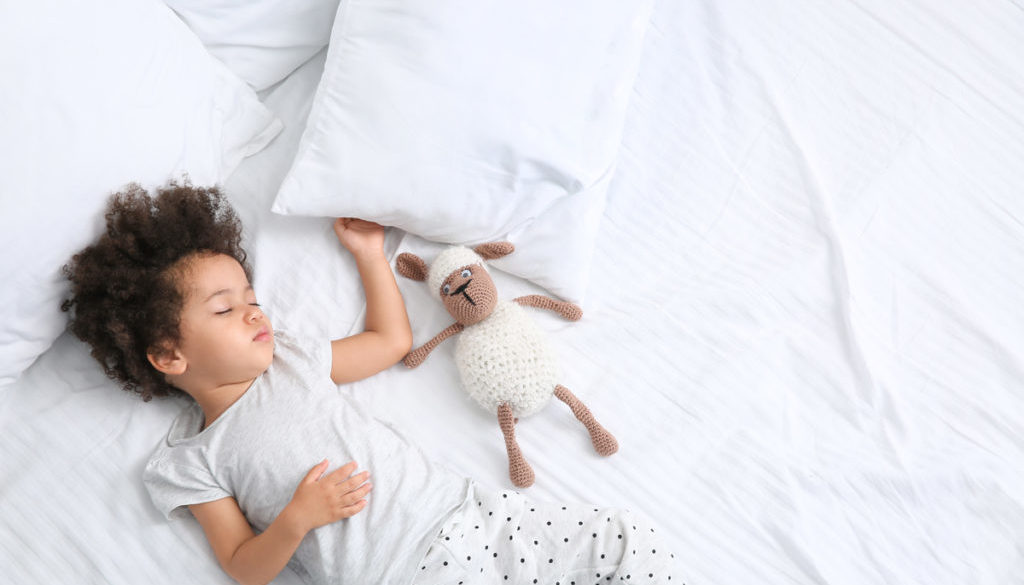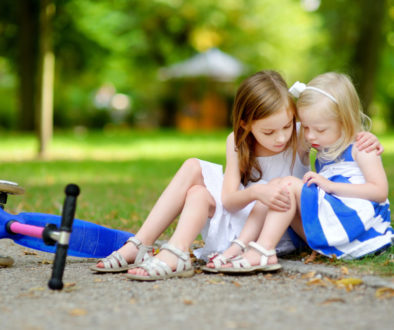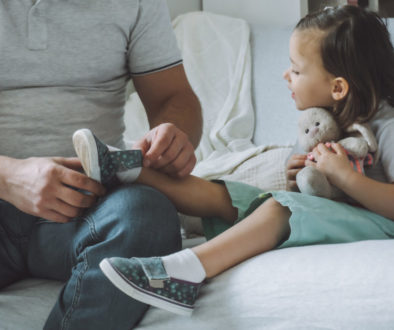Naps and Nighttime Sleep

Want to help your child get better nighttime sleep? Paying attention to and adjusting their daytime sleep first, may be just the secret. Babies and young children who get efficient naps during the day tend to sleep better at night and allow both you and your little one time to recharge in order to enjoy the rest of the day.
According to sleep research, the length and quality of naps affect nighttime sleep. This also means that nighttime sleep affects naps. Although babies differ in their napping needs, a general guide that applies to most babies follows:
| Age | Number of naps | Hours of naptime |
| 4 months | 3 | 4-6 |
| 6 months | 2 | 3-4 |
| 9 months | 2 | 2 ½ -4 |
| 12 months | 1-2 | 2-3 |
| 2 years | 1 | 1-2 |
| 3 years | 1 | ½ |
Parenting Tip: Keep in mind that as children grow and change, and their nap schedule should change with them. Remember that all children are different, and some may need a little more or less than others.
When should your baby nap?
Timing of naps is important. A nap too late in the day will negatively affect nighttime sleep, or maybe even cause early waking in the morning. Certain times of the day are better for napping because they suit your baby’s biological clock; these optimum periods balance sleep and wake time to affect nighttime sleep in the most positive way.
All babies are different, but generally, the best nap times are:
- If baby takes three naps: midmorning, early afternoon, early evening.
- If baby takes two naps: midmorning, early afternoon.
- If baby takes one nap: early afternoon.
Watch for your baby’s sleepy signals!
Naps should happen as close as possible to when your baby shows signs of tiredness. If you wait too long, they become overtired, “wired up,” and unable to sleep.
Once you are familiar with your baby’s nap needs, you can plan a nap routine to start the wind-down process. If consistent naps are new to you, look more for your baby’s signs of tiredness and limit the routine until you settle into a more consistent pattern. In other words, don’t begin a lengthy pre-nap routine if your baby is clearly ready to sleep.
Watch for one or more of these signs of tiredness:
- Decreasing activity
- Rubbing eyes or head
- Losing interest in people and toys
- Quieting down
- Looking “glazed”
- Lying down
- Yawning
- Fussing
- Snuggling a “lovey”
- Asking for pacifier or bottle/to nurse
Remember, naps are not a luxury, but are essential for growth and development, health, mood and performance!





